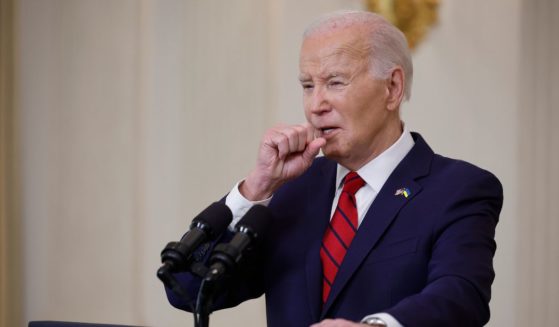Harvard Dodges a Bullet in Racial Discrimination Case, May Now Face Trump's Conservative Supreme Court
A federal appeals court on Thursday upheld a ruling clearing Harvard University of illegal discrimination against Asian-American applicants.
Two judges on the 1st U.S. Circuit Court of Appeals in Boston rejected claims from an anti-affirmative action group that accuses the Ivy League school of imposing a “racial penalty” on Asian-Americans.
The decision moves the case a step closer to a possible review by the U.S. Supreme Court. Some legal scholars believe the court will take up the case, and both sides have been preparing for that outcome.
Edward Blum, president of Students for Fair Admissions, said he was disappointed but that “our hope is not lost.”
“This lawsuit is now on track to go up to the U.S. Supreme Court where we will ask the justices to end these unfair and unconstitutional race-based admissions policies at Harvard and all colleges and universities,” Blum wrote in a statement.
The case revived a debate about racial discrimination in college admissions. In multiple decisions, the U.S. Supreme Court has ruled that colleges can consider race as a limited factor in admissions decisions.
But the practice faces mounting challenges in the courts, including three suits from Students from Fair Admissions.
In the latest decision, the judges concluded that Harvard’s admissions process passes legal muster and meets requirements previously set by the Supreme Court.
“The issue before us is whether Harvard’s limited use of race in its admissions process in order to achieve diversity in the period in question is consistent with the requirements of Supreme Court precedent. There was no error,” the judges wrote.
The group’s 2014 lawsuit alleges that Harvard’s admissions officers use a subjective “personal rating” to discriminate against Asian-Americans who apply to the school.
Using six years of admissions data, the group found that Asian-American applicants had the best academic records but received the lowest scores on the personal rating.
The group’s analysis found that Harvard accepted Asian-Americans at lower rates than any other racial group, while giving preference to black and Hispanic students with lower grades.
The lawsuit also alleged that Harvard works to keep a consistent and illegal “racial balancing” among new students.
Harvard denies any discrimination and says it considers applicants’ race only in the narrow way approved by the Supreme Court.
In close calls between students, some minority students may get a “tip” in their favor, school officials say.
After a three-week trial that cast new light on Harvard’s secretive selection process, a federal judge ruled that other factors could explain why Asian-Americans are admitted at lower rates than other students.
In her 2019 ruling, District Judge Allison D. Burroughs said Harvard’s admissions process is “not perfect” but concluded that there was “no evidence of any racial animus whatsoever.”
The judges agreed with a district court finding that Harvard’s personal rating is not influenced by race.
Although the rating may be correlated with race, the judges wrote, the link is more likely to be caused by outside factors including students’ personal essays or letters of recommendation.
Ultimately, the judges wrote, Asian-American identity has a statistically insignificant effect on admissions probability, and they concluded that Harvard does not place outsized emphasis on race.
“Harvard has demonstrated that it values all types of diversity, not just racial diversity,” the judges wrote. “Harvard’s use of race in admissions is contextual and it does not consider race exclusively.”
The U.S. Justice Department filed briefs supporting the lawsuit, arguing that Harvard goes too far in using race to select students.
President Donald Trump’s administration has also challenged racial discrimination at other elite schools, including Yale University.
If the Harvard case is taken up by the Supreme Court, some legal scholars believe that the current justices may place tighter limits on the use of race in admissions or forbid it entirely.
The current Supreme Court is more conservative than when it last ruled in favor of the consideration of race in college admissions.
Since that 2016 ruling, two justices in the 4-3 majority to uphold an affirmative action program at the University of Texas have been replaced by Trump appointees.
Along with the Harvard case, the Virginia-based Students for Fair Admissions is also suing to rid racial discrimination at the University of North Carolina in Chapel Hill and at the University of Texas at Austin.
The Western Journal has reviewed this Associated Press story and may have altered it prior to publication to ensure that it meets our editorial standards.
Truth and Accuracy
We are committed to truth and accuracy in all of our journalism. Read our editorial standards.












